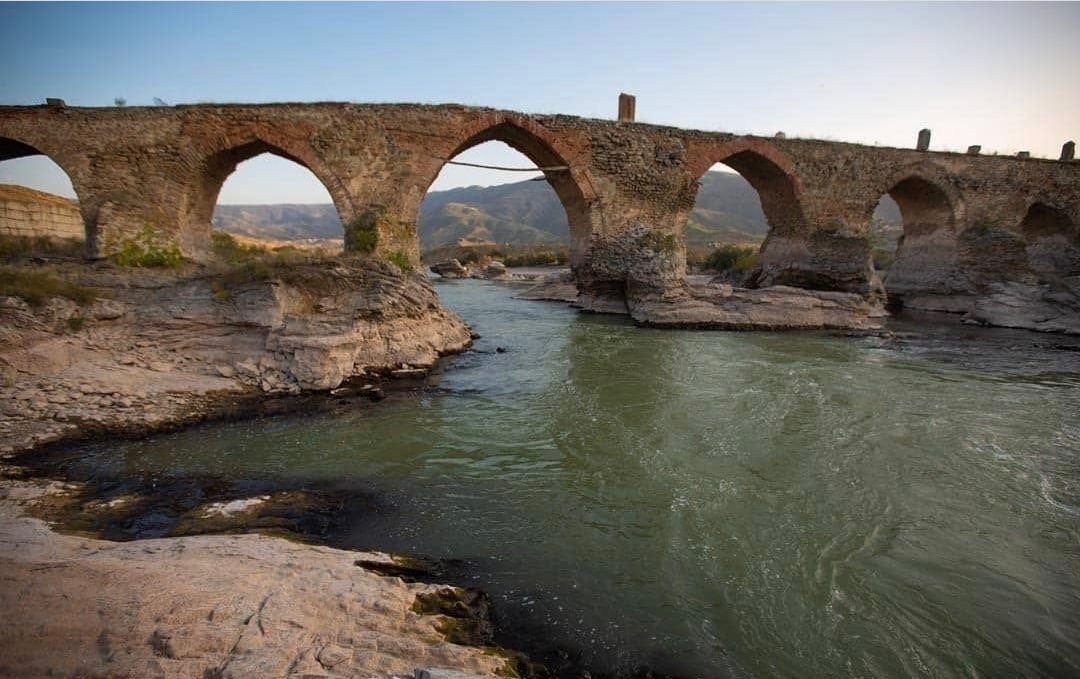
In the early hours of June 13, Israel launched an aerial assault on Iran, pushing two long-standing regional adversaries into a direct conflict. Missile salvos continue to claim hundreds of civilian lives, with no sign of abatement. Tehran, home to more than 10 million people, has begun evacuations, and this means that the most lethal phase may still lie ahead. The prospect of direct U.S. military involvement is no longer hypothetical, but increasingly plausible. Yet in neighboring Azerbaijan, there is a strange and uneasy silence. It is the silence of a country watching the clouds of war gather not on a distant horizon, but just across its southern border.
Azerbaijan is not a party to this conflict, but it is far from a disinterested observer. The war’s impact on Baku extends well beyond the macro-geopolitical tremors expected across the broader Middle East. This is a war that Azerbaijan feels in. Baku sits a mere two-and-a-half-hour drive from the Iranian border. Major Iranian cities like Tabriz, Ardabil, and Rasht are all within striking distance. Even Tehran is closer to Baku than to any other foreign capital among Iran’s neighbors.
Geography alone, however, does not account for the depth of Azerbaijan’s entanglement. Iranian Azerbaijan, the northern Iran, is home to a large ethnic Azerbaijani population, estimated at around 25 million, or roughly a quarter of Iran’s population. Tabriz, the region’s capital, has already suffered under the weight of the war. Even Tehran, now at the epicenter of the conflict, is believed to have a population that is at least one-third Azerbaijani. For Azerbaijan and Azerbaijanis, this is no distant war.
The trajectory of the war remains uncertain. Some in diplomatic corridors still hope for a U.S.-brokered deal: an end to Iran’s nuclear ambitions in exchange for a ceasefire. But that possibility, while desirable to many, remains speculative at best. In the meantime, the conflict spreads both geographically and psychologically by the hour. While a full-scale ground invasion of Iran appears unlikely for now, with neither the U.S. nor Israel keen or able to commit ground troops, the current pattern of airstrikes and missile exchanges — the so-called “war of cities” — may evolve into something far more unpredictable.
One of the most acute risks facing Azerbaijan is the potential for a mass exodus of refugees. With few realistic escape routes to the south (toward the Gulf) or eastward into Afghanistan and Pakistan, where terrain is harsh and borders are perilous, many fleeing the violence will inevitably look north. Turkey and Iraq present geographic challenges of their own. The South Caucasus, by contrast, offers the most accessible and plausible path to refuge. Azerbaijan's land borders have remained officially closed since 2020, but in the face of desperation, physical barriers may prove insufficient. A large-scale refugee influx would place unprecedented strain on Azerbaijan’s resources and infrastructure.
Yet for Baku, the refugee crisis may not even be the worst-case scenario. The deeper fear is that this war, through escalation or miscalculation, expands into a wider regional conflagration. Once the U.S. and other regional actors are drawn into the vortex, the line between containment and catastrophe becomes perilously thin. Azerbaijan, to some extent, benefits from its military neutrality — hosting neither American nor Israeli forces — and from its relatively peripheral geography. It is not Iraq, nor the Gulf.
But if the war’s endpoint begins to be viewed through the prism of regime change — with no diplomatic offramp in sight — the Iranian leadership may come to see the Final War as its only remaining option. In such a scenario, irrational calculations and scorched-earth strategies could become the new normal. For Azerbaijan and any other regional actor, attempts to remain on the sidelines will only hold so long as Tehran’s leaders do not decide otherwise. If all roads lead to abdication, Tehran may be willing to pay any price. History has shown that the most feared scenarios often emerge precisely when they are dismissed as improbable.
Still, diplomacy has not yet exhausted its tools. Azerbaijan is not a combatant in this war and does not wish to become one. But if the conflict escalates into a broader regional war, the strain on Azerbaijan will grow exponentially. In such a case, Baku may find itself turning to its closest strategic ally Turkey not just for reassurance, but for resilience.